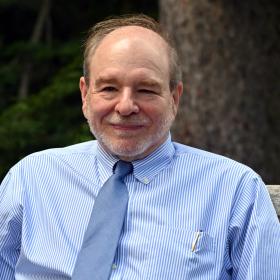
When the Patient Isn't Getting Better - Eric M. Plakun, MD, DLFAPA, FACPsych (Recorded)
All clinicians face the problem of working with patients whose treatments are not going well and who are not making progress. Clinicians often label these patients as "difficult" or "treatment resistant." This presentation addresses clinicians' own contributions to this experience, including the role of reductionist biomedical perspectives that do not match evolving evidence. The presentation also summarizes psychodynamic principles that may improve outcomes and the role of intermediate levels of care in treating some of these patients.
Target Audience
_____ Introductory ___X___ Intermediate ______ Advanced
Learning Objectives
- List 3 false assumptions of the biomedical model that contribute to the experience of patients as difficult.
- Use the therapeutic alliance to enhance work with "difficult" patients.
- Understand and utilize the concept of "enactment" in work with difficult to treat patients.
As the medical director/CEO (2018-2024) of Austen Riggs, which is a non-profit, Eric Plakun, MD, reports to a dedicated Board of Trustees. He is responsible for all areas of the institution from the provision of patient care to the operational mechanics and strategic planning. He has a particular interest in mental health advocacy, full implementation of the mental health parity law, access-to-care issues, and reducing health disparities.
Dr. Plakun was the director of admissions for 35 years and has dedicated nearly his entire professional career to Riggs (more than 40 years) and its unique way of looking at and treating mental disorders. Other roles have included treatment team leader, psychotherapy supervisor, and co-principal investigator of a prospective, longitudinal study of treatment outcome.
Dr. Plakun has long been active in the American Psychiatric Association as a voice advancing the importance of psychotherapy as part of the identity and skills of psychiatrists, and as a member of the Assembly Executive Committee and Board of Trustees. He served as Plaintiffs’ expert on adult mental disorders in the landmark Wit v. United Behavioral Health federal class-action. The strong plaintiffs’ verdict was hailed as a “game-changer” in the implementation of the mental health parity law by Former Congressman Patrick Kennedy.
Austen Riggs Center Inc. adheres to the ACCME’s Standards for Integrity and Independence in Accredited Continuing Medical Education. All those at Austen Riggs Center involved in the planning of this activity, including the presenter(s) listed above, report they have no relevant financial relationships with an ineligible company*.
The views and opinions expressed in this presentation are those of the presenter(s) and do not necessarily represent the official policy or position of the Austen Riggs Center.
* An ineligible company is any entity whose primary business is producing, marketing, selling, re-selling, or distributing healthcare products used by or on patients.
Available Credit
- 1.00 AMA PRA Category 1 Credit™
ACCME - As a Jointly Accredited Organization, The Austen Riggs Center, Inc. designates this learning activity for a maximum of 1.00 AMA PRA Category 1 Credit™. Physicians should claim only the credit commensurate with the extent of their participation in the activity.
- 1.00 APA
As a Jointly Accredited Organization, The Austen Riggs Center, Inc. designates this learning activity for 1.00 continuing education credit(s) (CE) for psychology. Continuing Education (CE) credits for psychologists are provided through the co-sponsorship of the American Psychological Association (APA) Office of Continuing Education in Psychology (CEP). The APA CEP Office maintains responsibility for the content of the programs.
Austen Riggs Center, Inc. is recognized by the New York State Education Department’s State Board for Psychology as an approved provider of continuing education for licensed psychologists #PSY-0115.
- 1.00 Contact Hours/ ParticipationA certificate of attendance for all Learners.

 Facebook
Facebook X
X LinkedIn
LinkedIn Forward
Forward